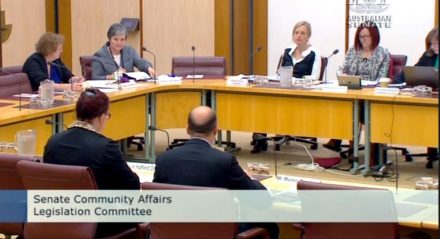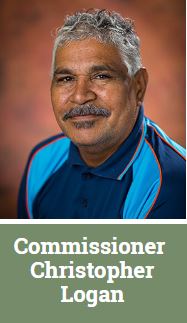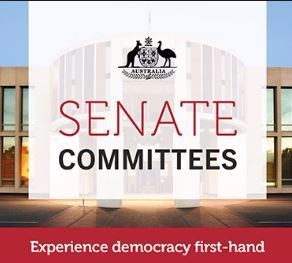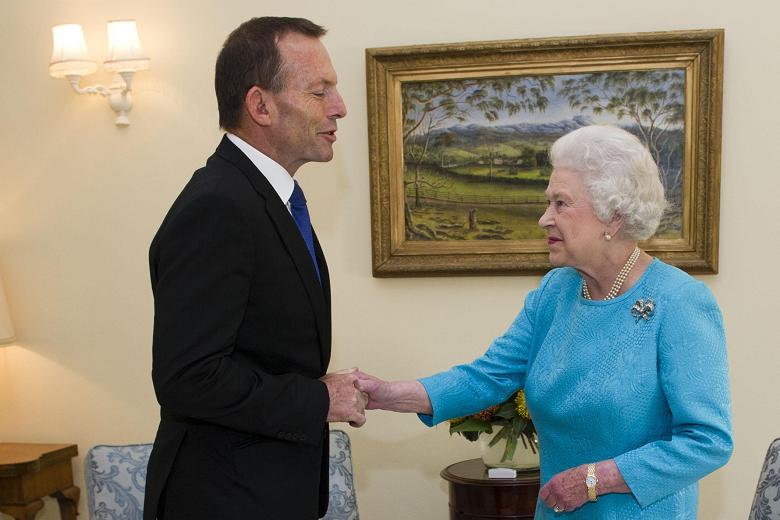House Music: The Rise of Ministerial Advisers
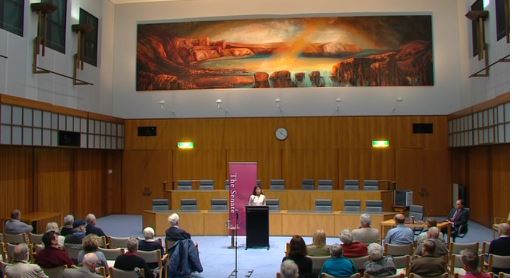
The rise of Ministerial Advisers is examined by Dr Yee-Fui Ng. Peta Credlin, Kevin Rudd and Children Overboard are interesting inclusions. This week I also introduce a new element in House Music – Senate Occasional Lectures. Senate Occasional Lectures are part of the Seminars and Lectures Series in Parliament House.
Dr Ng is a lecturer at RMIT. Her research interests are in the areas of political integrity and law. She has worked as a Policy Adviser to Prime Minister and Cabinet and as a Senior Legal Adviser in the Victorian Department of Premier and Cabinet. Dr Ng is the author of Ministerial Advisers in Australia – The Modern Legal Context. For this book, Dr Ng interviews 22 former and current Ministers and Members of Parliament, including four former Premiers, two former Treasurers, five former Senior Ministers, one leader of the Greens and two former speakers. Dr Ng uses theming to explain the findings in this lecture. I have paraphrased Dr Ng’s lecture below. The video link is provided.
House Music is a weekly blog where I discuss various Bills, Committees, Petitions and try to raise awareness of the valuable resources on the APH website.
A New Political Class – Introduction
The 1970s saw the development of the modern Senate committee system. Therefore, this also saw the introduction of Senate Standing Committees and Estimate Committees. Importantly, the significance of this change is Senate Committees could hold the Government to account. This era marked the shift from Ministers relying solely on Departments for advice to the introduction of a new political class – the Ministerial Adviser. This new political class stands between the Minister and the Public Service.
The Role of the Ministerial Advisers
“It’s very hard to feel sorry for politicians” (Dr Ng)
In this opening statement, Dr Ng explains the complexity of a Minister’s role. Modern day politicians have many different responsibilities including, policy, the media and political issues. Advisers meet with stakeholders and interest groups as well as constituents. In addition, they must work with their Prime Minister, Members of Parliament and their political party.
Furthermore, new Ministers face a complex system of bureaucracy inherited from the previous Government. Although the public service is impartial; Ministers may not trust a public service which has just served the outgoing Government. As a result, Ministers may seek partisan support from advisers who they can trust. This has led to the rise of the Ministerial Adviser. The Minister directly appoints their Ministerial Advisers.
Ministerial Advisers
The beginnings of Ministerial Advisers were in the form of the Kitchen Cabinet in the 1970s. A group of the Minister’s trusted colleagues ‘sat around the kitchen table’ and passed on advice to the Minister as well as developed political strategy. This has since formalised into the role of the Ministerial Adviser.
This was a distinct shift from the Minister seeking advice from the impartial public service to a partisan adviser.
Ministerial Staff have increased by 173 percent over the last 40 years. in 1972 there were 155 Ministerial Staff. In 2015 there were 423 Ministerial Staff.
Ministerial Advisers – Influential and Powerful
Ministerial Advisers are influential and powerful and work across a range of functions. Some Ministerial Advisers such as Chief of staff to the Prime Minister and very Senior Ministers were more powerful than many ministers and members of parliament.
Often the Ministerial Advisers you find in the Prime Minister’s and Premier’s offices are more powerful than some Ministers. The Head of the Media Unit the Chief of Staff and maybe one or two advisers in Prime Ministers and Premier’s office, are more powerful, have more influence on the decision makers in most cases, than certainly Junior Ministers and more than most Ministers. (John Thwaite – Former Deputy Premier)
Intimacy
In addition, Intimacy develops between the Minister and their Ministerial Advisers. This is due to long working hours and high political pressures.
There is an intimacy in the Ministerial office. People work ridiculous hours, you are living in each other’s other’s pockets, it is a relatively small area. You are under intense pressure. (Lindsay Tanner, Former Minister)
Dr Ng says that this environment is conducive to this type of intimacy. This intimacy gives more access, trust and bond than someone who is coming in to see you every two days.
Minister’s may see their Advisers more than they see their partner. (Steve Bracks former Premier)
Dr Ng describes this as a relationship forged in fire.
Peta Credlin

To demonstrate the power of Ministerial Advisers, Dr Ng offers Peta Credlin as a key example.
Former Prime Minister Tony Abbott’s Chief of Staff Peta Credlin is a well-known example of a formidable former ministerial adviser. Credlin was once rated as Australia’s most powerful woman. There were frequent media reports about Credlin giving directions to and berating Ministers and Members of Parliament. Credlin also sat in on cabinet meetings and vetted Ministerial staff selection and media appearances.
She’s tough. She is the player, she makes demands, she gives directions, she balls people out. (Liberal Insider)
Credlin undoubtedly had more power and influence than most Ministers. Dr Ng concludes that “The Star of Ministerial Advisers has well and truly risen.”
Reduction of Power in the Public Service
Dr Ng explains the important inclusion of Ministerial Advisers is the link to the reduction in influence by public servants.
For example, Kevin Rudd would ignore his department for months at a time. Ministerial advisers were Rudd’s primary source of advice.
Dr Ng also demonstrates an observable shift. A Departmental Secretary physically moved to give the front row seat at an important function to the (Premier’s) Chief of Staff.
A key point of difference is that Public Servants operate under a strict administrative and compliance structure for accountability. Ministerial Advisers operate in a largely unregulated framework.
The public service reforms of 1980s were intended to bolster the position of ministers compared to public servants, as well as to increase the responsiveness of the public service. (Former Prime Minister – Paul Keating.)
and
Intent of the Ministerial staff system was to counter the impact of the imperial public service that was not elected and an excessive influence of Government and was not under the control of the elected Government. (Former Minister Dr David Kemp)
The implementation of the Ministerial staff system was to reduce the influence of the public sector. Dr Ng explained increased efficiency was another reason.
Children Overboard – Efficiency over Accountability

However, Dr Ng argues that the rise of Ministerial Advisers is the triumph of efficiency over accountability. The appearance of Ministerial Advisers before Parliamentary Committees is used to demonstrate this.
In some instances, Ministerial Advisers have been banned from appearing before Parliamentary committees. This happened in the Children Overboard Incident.
In 2001, Prime Minister John Howard claimed that asylum seeker passengers threw their own children overboard.
Within several days the public servants found out the children overboard story was false. They advised the Ministerial Advisor to the Defence Minister this story was false. However, Ministers continued to keep making statements that Asylum Seekers threw their own children overboard, as part of an election strategy. The press secretary for the Defence Minister asked the public servant to email photos to him. The photos were from Navy Sailors who had rescued terrified asylum seekers and their children when their boat sank.
The public servants made it clear that these photos were not of the Children Overboard incident but as part of a rescue operation. The Minister released photographs of “children thrown overboard”. Although, the Ministerial Adviser was notified this was not the case.
(Photos of the Children Overboard incident were used in the 2001 election campaign.)
Escaping Scrutiny
A Senate Committee enquiry was formed to investigate the Children Overboard incident. The Government refused to allow Ministerial Advisers to appear before the Committee. The Senate Committee was highly critical of this and argued this move shunned accountability.
This means they do not need to provide an explanation for accountability. Ministers can effectively escape scrutiny for their actions and deny responsibility.
Dr Ng explains that this creates an accountability gap and Government seeking to ensure executive accountability is undermined. Dr Ng argues this is a failure at a systemic level and Ministers can avoid their own responsibility to Parliament.
Constitutional Conventions
Dr Ng explains the complex nature of constitutional conventions and the different powers between Standing and Select Senate Committees. She explains that the belief system of politicians plays into whether Ministerial Advisers should appear before committees. Dr Ng points to a conjuncture between law and politics.
Within the interviews, former Ministers Kim Carr and Peter Costello objected to Ministerial Advisers appearing before Parliamentary Committees on the basis it allows Ministers to evade their own responsibilities to Parliament.
It would look very weak if you sent your Ministerial Advisers in for you (Peter Costello – Former Minister).
Anna Burke, the former Speaker of the House, argued that Ministerial Advisers should appear before parliamentary committees for a variety of reasons. Burke argued that Ministerial Advisers should have appeared in the Children Overboard inquiry.
Belief or Law?
Dr Ng explains the disparity of belief about conventions and the decision in the Children Overboard inquiry about Ministerial Advisers not appearing before Senate Committee.
For example, a former Liberal Senior Minister said that conventions are only practised until they are broken.
Conventions can be in the eye of the beholder and do not survive a brutal assault driven by political reasons. On an issue of this kind, people tend to do whatever suits their short term political interests. (Former Liberal Senior Minister)
Dr Ng argues that various parties will adopt contradictory positions with regard to conventions.
Either the Minister needs to accept responsibility for what their staff do. You cannot say they are responsible to me, but I don’t care what they do. I am not going to tell you what they do because it is nobody’s business. (Dr Ng)
Dr Ng argues there is no legitimate reason to exclude Ministerial Advisers from appearing before Parliamentary Committees.
Ministerial Advisers are an important part of the system and in that sense, I think that they are accountable the same way as Ministers are accountable to the public interest. The public interest is protected by Parliament and when Parliament enquire into something, they should get all the evidence that they need. It has never been an issue in Western Australia. (Geoff Gallop – Former Western Australian Premier)
Dr Ng explains that it is only the Commonwealth and the State of Victoria that makes the case that Ministerial Advisers are prevented from appearing before parliamentary Committees, through a constitutional convention.
Conclusion
Dr Ng concludes:
There are failings at an institutional level in the Australian system of public administration. This has been exacerbated by the rise of Ministerial Advisers in the Australian system of Government, the manipulated behaviour of politicians and the unreflective adoption of the public management efficiency approach.
We are caught between law and convention, continuity and change. (Dr Ng)
Dr Ng’s full lecture can be viewed here:
Source: Senate Occasional Lecture – Dr Yee-Fui Ng – 21/07/2017 12:07:00 – Parliament of Australia
Originally published on The Red Window
Like what we do at The AIMN?
You’ll like it even more knowing that your donation will help us to keep up the good fight.
Chuck in a few bucks and see just how far it goes!
Your contribution to help with the running costs of this site will be gratefully accepted.
You can donate through PayPal or credit card via the button below, or donate via bank transfer: BSB: 062500; A/c no: 10495969










